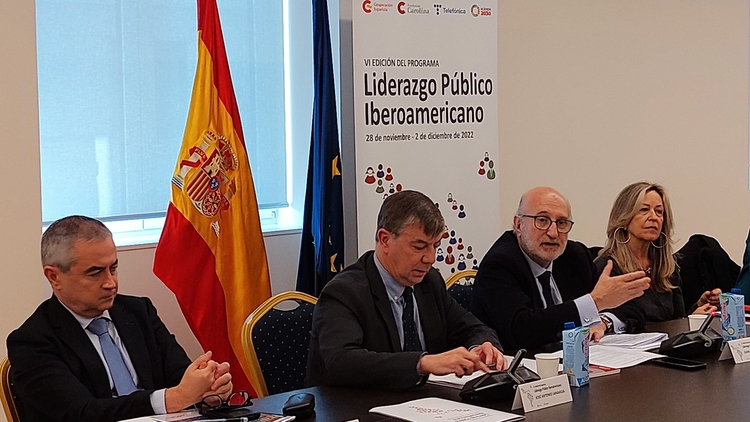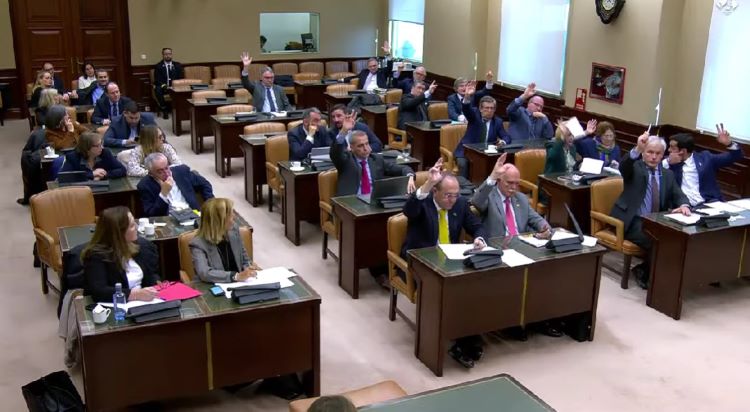The Diplomat
The 6th edition of the Ibero-American Public Leadership Programme, organised by the Carolina Foundation and Telefónica, kicked off on Monday at an event held at the Ministry of Foreign Affairs.
On this occasion, the programme has ten participants from Argentina, Brazil, Chile, Colombia, Costa Rica, Mexico, Dominican Republic, Ecuador, Peru and Uruguay, who hold positions of responsibility in their respective countries.
For five days they will hold an agenda of institutional meetings and academic sessions in which they will have the opportunity to talk exclusively with leading Spanish and European figures from both the public and private sectors on cutting-edge issues in expert knowledge on management and public policies that form part of the public and government agenda.
The 6th edition, to be held in Madrid and Bilbao, will be entitled: “The adoption of rights in the Euro-Latin American space”. Until Friday, the 2nd, the expansion of the new digital and communication ecosystems will be debated and reflected upon, in their programmatic and public policy management dimensions.
Thus, there will be discussions on the legislation of digital rights, linked to guarantees of access and enjoyment, equitable and egalitarian; the resizing of the meaning of citizenship in a digitalised world (including the defence of individual dignity in the face of the risks of loss of privacy); and the challenges linked to the influence of technologies such as artificial intelligence and the metaverse on civil society, the world of work, information, and the governance of the public, so that the principles of pluralism, gender equality, inclusion and digital disconnection are respected.
The opening session featured speeches by the State Secretary for Ibero-America, Juan Fernández Trigo; the Director of Global Strategy for Public Affairs at Telefónica, Trinidad Jiménez; and the Director of the Carolina Foundation, José Antonio Sanahuja.
Juan Fernández Trigo stressed that “we have more than enough reasons to be very close to Latin America”, underlining that “inequality is something that harms or complicates this rapprochement”, and emphasising the main challenge facing our societies in this area: the digital divide.
Trinidad Jiménez, for her part, focused her speech on the importance of ethical principles in the digital sphere, implemented by companies such as Telefónica, in order to design and adopt responsible technology in accordance with the values of our societies, giving as an example the principles of Artificial Intelligence, “which emphasise equality, transparency, clarity, privacy and security”.
Finally, José Antonio Sanahuja described the current moment as a “polycrisis” or interregnum, which requires both the EU and Latin America to adopt a transformative agenda based on a “triple transition” that is socio-economic, digital, productive and ecological, and that is fair and underpins a new social contract.
José Ignacio Torreblanca, Director of the Madrid Office and Senior Researcher at the European Council of Foreign Relations (ECFR), then gave a lecture on the topic: “EU-Latin America and Caribbean Digital Alliance in the framework of the Spanish Presidency of the EU”.
The Ibero-American Public Leadership Programme was created with the aim of contributing to the strengthening of democratic institutions in Ibero-America through the exchange of experiences and good practices, and has established itself as a key annual event for the system of technical cooperation and Ibero-American public administrations.







